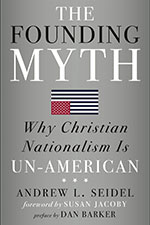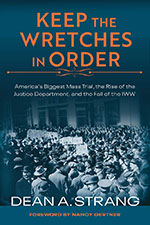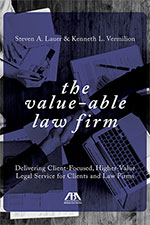 VERDICT: Touchdown!
VERDICT: Touchdown!
The Founding Myth: Why Christian Nationalism is Un-American
By Andrew L. Seidel (New York, NY: Sterling Publishing, 2019). 352 pgs. $15.16. Order, www.amazon.com.
Reviewed by Dianne Post
Lawyer and historian Andrew Seidel, with the Freedom from Religion Foundation in Madison, has put together a meticulously researched and brilliantly argued book on why the efforts of Christian nationalists to destroy the “wall of separation” between church and state are traitorous. The contradictions, hypocrisy, and myths of the Bible versus history are pointed out, along with Biblical violence, sexual abuse, and genocide. Seidel’s comparison of the 10 Commandments to the U.S. Constitution is ingenious. He also exposes the truth about our “national mottos”: in God we trust, one nation under God, and God bless America.
The United States is special not because U.S. residents are a chosen people but because the government was not organized based on religion. The countries that are based on religion – Iran, Saudi Arabia, and Pakistan to name a few – are notorious for their violations of international human rights, violence toward women, and silencing of people who disagree. For anyone concerned about the direction of our democracy, The Founding Myth is a must read.
Dianne Post, U.W. 1979, is an international human rights lawyer. She practiced family law in Arizona for 18 years, mostly representing battered women and molested children, and then in 1998 began doing international work mainly on gender-based violence.
 VERDICT: It’s a Keeper
VERDICT: It’s a Keeper
Keep the Wretches in Order: America’s Biggest Mass Trial, the Rise of the Justice Department, and the Fall of IWW
By Dean A. Strang (Madison, WI: University of Wisconsin Press, 2019). 336 pgs. $36.95. Order, http://uwpress.wisc.edu/.
Reviewed by Tom Shriner
Dean Strang, long a leading criminal defense lawyer in Wisconsin, tells the stories of historical trials well. His book Worse Than the Devil, published in 2013, recounted the tale of the 1917 bombing of a police station in Milwaukee that was blamed on Italian anarchists, though no one was ever charged. In the immediate aftermath of the bombing, a group of Italians not charged with the bombing – indeed, they were sitting in the jail at the time it happened – were tried and convicted for a riot that had taken place in Bayview earlier in the year. The evidence against most of them was flimsy, and the presiding judge made no secret of his intention to show that anarchists (which some of the defendants were) would not be tolerated in Milwaukee.
Want to Review a Book?
Please request a book and writing guidelines from Wisconsin Lawyer managing editor Karlé Lester, at klester@wisbar.org or (608) 250-6127. Reviewers may keep the book reviewed. Reviews of about 500 words are due within 45 days of receiving the book. Reviews are published, space permitting, in the order received and may be edited for length and clarity.
Strang’s latest offering, Keep the Wretches in Order, returns to the days of World War I and examines the indictment and 1918 trial in federal court in Chicago of 166 “Wobblies” – leaders and members of the International Workers of the World – for their opposition to American involvement in the war. They were indicted for conspiring to oppose the draft and the war. Almost all the acts charged in furtherance of the conspiracies occurred before war was declared and even before the statutes that the defendants were charged with violating had been enacted.
All 97 of those left standing at the end of the four-and-one-half-month trial were convicted after less than one hour of jury deliberation. The judge, Kenesaw Mountain Landis (later the first commissioner of baseball), who had made a show of conducting the trial fairly, made little effort at sentencing to conceal his contempt for the defendants, sending many of them to long terms in Leavenworth Prison. The Seventh Circuit reversed the convictions on two of the four counts of the indictment but affirmed the convictions on the other two. Because the longest sentences were on a count that was upheld, none of the defendants gained a day of freedom from the partial victory.
Strang emphasizes the new role of the U.S. Department of Justice (DOJ) (as opposed to local federal prosecutors) in conceiving, coordinating, and executing the plan to try the leaders of the IWW in a single case, in what is still the largest mass trial in American history. Intended to prevent the union from engaging in strikes that might interfere with the war effort, the DOJ’s plan accomplished its object of effectively destroying the IWW.
In reading the book, I was struck repeatedly by the way in which the constitutionalization of federal criminal procedure during the last century makes it nearly unimaginable how different this aspect of the world was so recently. Strang’s careful description of such details as the way in which the government was allowed to use illegally seized evidence (even under the law at the time, Weeks v. United States, 1914), and the many nameless and faceless defendants, sitting in bleachers in the courtroom, charged with an overt act or two (often amounting only to being union members) and swallowed up in the struggle over the bigger fish, brings home the profundity of the change.
This is a good story, well worth reading and thinking about.
Thomas L. Shriner Jr., Indiana Univ.-Bloomington 1972, is in practice with Foley & Lardner, Madison.
 VERDICT: Not for Me, Maybe for You
VERDICT: Not for Me, Maybe for You
The Value-Able Law Firm: Delivering Client-Focused, Higher-Value Legal Service for Clients and Law Firms
By Kenneth L. Vermilion & Steven A. Lauer (Chicago, IL: ABA Business Law Section, 2018). 168 pgs. $79.95. Order, https//shop.americanbar.org.
Reviewed by Matthew E. Ludt
Reflecting on our ever-changing legal climate, The Value-Able Law Firm recognizes that the traditional billable hour is ineffective in communicating the value that law firms provide clients. The authors outline a researched, thoughtful approach for firms to deliver a client-recognized and client-appreciated “higher-value legal service.” These higher values can include expertise, cost control, consistency, predictability, speed of resolution, reliability, responsiveness, and convenience.
The authors’ approach includes how to assess and distinguish the different values that each client seeks. The Value-Able Law Firm doesn’t advocate giving all clients the same higher value service. Rather it instructs how to provide the higher value service each client wants, based on the type of legal work and clients’ individual preferences.
Thinking of my clients, preparing them to recognize value in family law work is tricky. We cannot use a scorched-earth approach; most clients need to co-parent with the former partner for many years to come. Further, clients’ upbringings and media depictions of divorce have not prepared them to know what great service looks like when their strategy should not be to throw every punch. The teachings of this book have helped my family law firm discuss what each client needs and what service each client wants.
The Value-Able Law Firm, however, was written for lawyers who serve as outside corporate counsel for corporations. The only focus is on working with the client’s in-house lawyers and corporate officers to identify, measure, and report on the values understood for that client company and its industry. It is not a book that addresses lawyers such as me who work with individuals as clients.
Further, this book is written with academic and policy prose. While such philosophy may be just what managing attorneys want to build on while transitioning their firms to “client centrality” value delivery, it is not a casual read that a busy lawyer can absorb, process, and implement.
I have little doubt that The Value-Able Law Firm will be valuable to attorneys whose firms do corporate client work and are earnestly interested in using its researched philosophy to revise their firm’s value-delivery culture. But this is not the book for busy lawyers to use, even if they recognize the need to become “value-able” in our ever-changing legal climate.
Matthew E. Ludt, Temple 2003, is the founder of Atticus Family Law S.C, Stillwater, Minn., and serves clients in the Twin Cities and Western Wisconsin.
